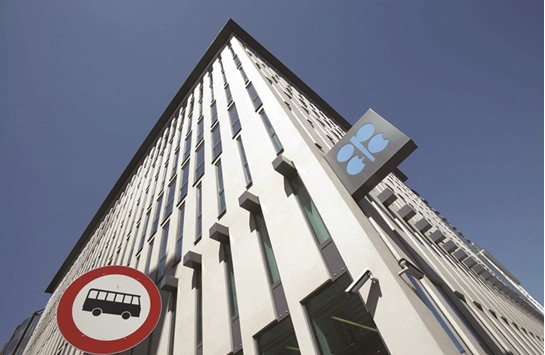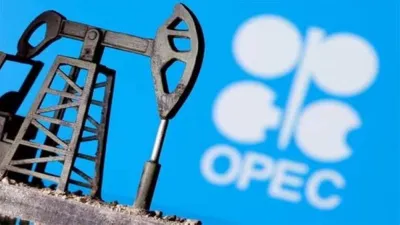With a week to go until Opec meets to discuss the group’s production policies, a majority of the group’s members have already set out their positions: They want to extend a round of oil output cuts to eliminate a glut.
Seven out of 13 members of the Organization of Petroleum Exporting Countries – representing 84% of the producer club’s collective output – have publicly stated support for continuing their supply curbs. Their pronouncements may diminish the impact if the meeting does go as planned.
“The communication has been very clear,” said Jan Edelmann, a commodity analyst at HSH Nordbank. “So the actual meeting might be a bit of a non-event.”
Opec’s meeting is still the most anticipated event for oil-watchers since the group announced its production cuts on November 30 in an effort to end a three-year glut and steady the market. The curbs, in place since the beginning of the year, have failed to sustain higher prices as US competitors have increased supplies. In response, Opec and its allies are signalling that they won’t let up in their efforts.
Opec members Saudi Arabia, Iraq, Iran, the UAE, Kuwait, Venezuela and Algeria have said they back some sort of extension of output cuts, or would do so if other members do. Those nations, which include the club’s six biggest producers, in April pumped a combined 26.6mn bpd, according to the group’s secondary source data. The current deal allows Iran to increase production and exempts two other members, Libya and Nigeria.
Meanwhile, four of the 11 non-Opec nations that joined supply cuts – Russia, Azerbaijan, Oman and South Sudan – have said they would also support extending the curbs. Last month they collectively produced 12.9mn barrels of crude a day, data from the Paris-based International Energy Agency show. Russia accounts for 85% of that output.
Some other nations now cutting supplies haven’t yet stated their positions. Kazakhstan, which is trying to increase production at its giant new Kashagan field, won’t automatically extend its current cuts, its energy minister has said.
Oil analysts say that even though some producers have shown willingness to prolong production cuts, the market wants to see that those nations actually comply with an extension before a meaningful price increase occurs.
“People are going to be judging the result of producer action in the data,” Harry Tchilinguirian, head of commodities strategy at BNP Paribas SA in London, said by phone. “It’s for the market to take stock of the fact that there are logistical lags.”
Brent crude, the global benchmark, has moved within a band of about $12, with a high above $58 a barrel, since the output cuts were announced late last year.
Speculators amassed the equivalent of more than 1bn barrels of long positions in oil when Opec and other nations agreed to cut production late last year. That led some of the market’s biggest hedge funds to incur heavy losses on bullish bets as inventories globally struggled to draw down. Weakness in both the US and the North Sea markets sparked a price sell-off at the end of April, and hedge funds have pared record bets on crude prices rallying.
Still, some Wall Street banks expect higher prices later in the year, with Goldman Sachs Group Inc and Citigroup Inc saying earlier this month that now is the time to buy oil. Opec will probably achieve its goal of returning inventories to their five-year average if it extends cuts by nine months, according to Bloomberg calculations.
It remains to be seen how Opec and its allies will proceed. Most participating nations back a nine-month extension, Algerian Energy Minister Noureddine Boutarfa said in Moscow yesterday. Saudi Arabia and Russia earlier this week said they favoured such an agreement. The next day, Iraq said it would back a six-month extension and is committed to reducing its share of output. Russian Energy Minister Alexander Novak has also indicated other countries might be brought into the production accord.

The logo of Opec is seen at its headquarters in Vienna. Seven out of 13 members of the Organisation of Petroleum Exporting Countries u2013 representing 84% of the producer club’s collective output u2013 have publicly stated support for continuing their supply curbs.


